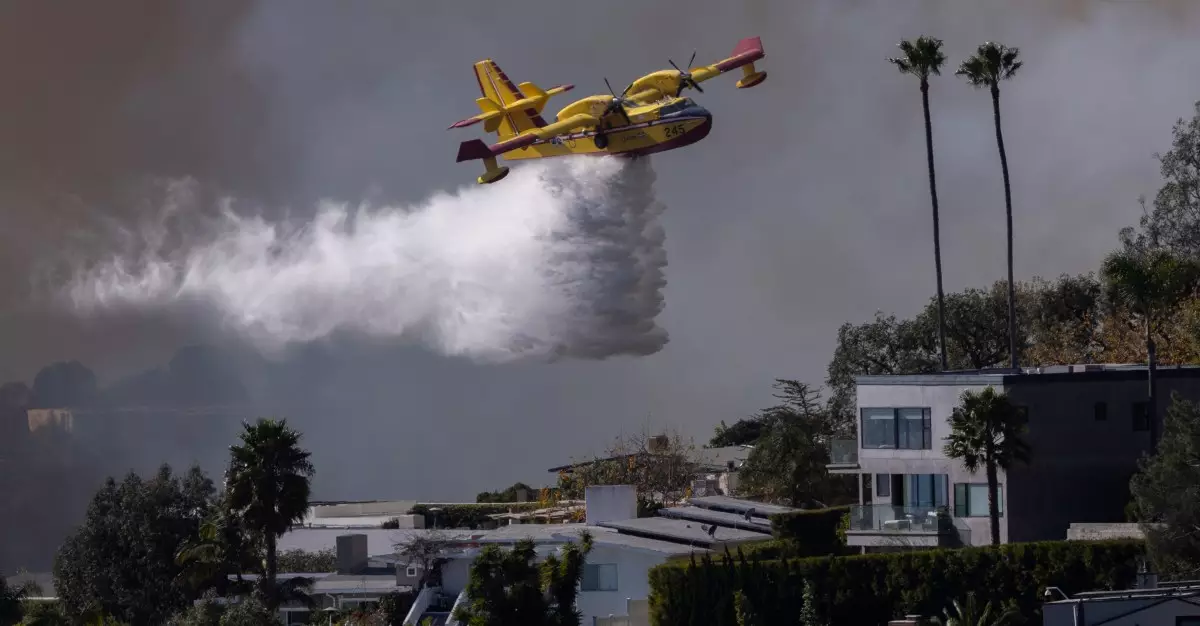The ramifications of violating aviation regulations can be severe, as demonstrated by the recent case involving Peter Akemann, a former tech executive who inadvertently grounded a firefighting aircraft. This article delves into the details surrounding the incident, the legal consequences faced by Akemann, and the broader implications of drone operation ethics, especially in emergency situations.
On January 9, 2025, Peter Akemann, utilizing his DJI Mini 3 Pro drone, flew far beyond the recommended visual range and unauthorized airspace, resulting in a collision with a Super Scooper water dumping plane engaged in combating the Los Angeles Palisades wildfires. The collision caused substantial damage to the plane, which was critical to ongoing firefighting efforts. Akemann’s choice to operate his drone under conditions expressly prohibited by the Federal Aviation Administration (FAA) not only led to significant financial repercussions but also exacerbated the challenges faced by emergency responders at a critical time.
Akemann’s actions were not merely reckless; they violated established regulations intended to safeguard both aerial vehicles and their operators. The FAA had instituted temporary flight restrictions due to the ongoing wildfire, highlighting the importance of adhering to such regulations in emergency contexts.
As a result of the incident, Akemann agreed to plead guilty, potentially avoiding a year-long prison sentence in exchange for 150 hours of community service focused on wildfire relief and an estimated $65,000 to cover the aircraft repairs. This plea agreement, however, is contingent upon the U.S. District Court’s approval, emphasizing the uncertainty that can accompany such legal negotiations.
Should the court reject the plea deal, Akemann could face far more severe consequences, including a year of supervised release and fines that could reach up to $100,000, or an amount equivalent to twice the gross loss from the incident, whichever is greater. Such potential penalties illustrate the seriousness of violating aviation laws and the federal government’s commitment to enforcing these regulations.
One of the most alarming aspects of this case is the acknowledgment of human error. Akemann, through his legal representation, expressed deep remorse for his actions, categorizing the event as a significant mistake. Importantly, his attorneys suggested that mitigating factors would be presented during the court proceedings, including an indication that Akemann relied on the drone’s geo-fencing feature, which failed during the incident.
It raises the question of accountability in technology reliance. While drone manufacturers, such as DJI, implement geofencing to prevent unpermitted drone operations, it places considerable responsibility on pilots to ensure they are operating within legal constraints. While Akemann’s reliance on the technology might elicit sympathy, it should provoke a larger discussion about user responsibility in relation to evolving tech solutions.
The troubling aspect of this incident points not only to Akemann’s oversight but also to a growing trend where recreational and professional drone operators underestimate the importance of adhering to regulations. In recent years, as drone technology has become more accessible and widely used, the urgency of drone regulation has intensified. The fine line between innovative exploration and disregard for safety regulations must be navigated with care.
Moreover, this incident serves as a critical reminder for drone pilots to remain aware of active airspace restrictions, especially during emergencies such as wildfires when aerial support is paramount. Every drone pilot bears the responsibility of equipping themselves with knowledge about applicable regulations and demonstrating a commitment to public safety.
The case of Peter Akemann and his drone collision with a firefighting aircraft paints a stark picture of how individual actions can significantly impact public safety, especially during crises. As technology continues to shape our capabilities, it is essential for drone operators to heed aviation regulations and exercise judiciousness. The delicate balance between innovation and safety is imperative, and the implications of ignoring established guidelines can have dire consequences. It is the responsibility of all drone pilots—including seasoned professionals like Akemann—to operate with awareness and respect for the laws designed to protect us all.

